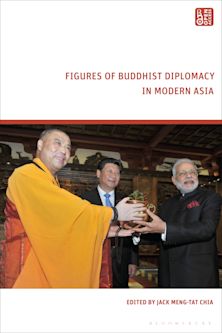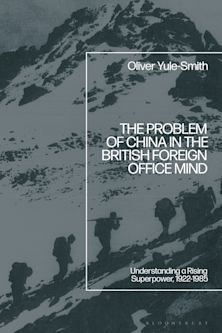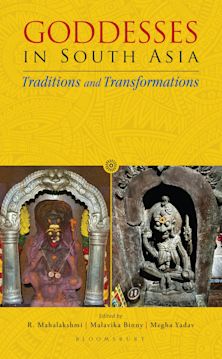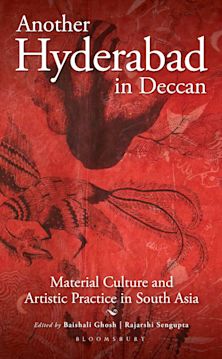- Home
- ACADEMIC
- History
- Asian History
- The Politics of Religion, Nationalism, and Identity in Asia
This product is usually dispatched within 1 week
- Delivery and returns info
-
Free US delivery on orders $35 or over
Exam copy added to basket
Choose your preferred format. Please note ebook exam copies are fulfilled by VitalSource™.
You must sign in to add this item to your wishlist. Please sign in or create an account
Description
This comprehensive book provides a comparative analysis of religious nationalism in contemporary, globalized Asia. Exploring the nexus of religion, identity, and nationalism, Jeff Kingston assesses similarities and differences across the region, focusing on how religious sentiments influence how people embrace nationalism and with what consequences. Kingston shows that in the age of the internet this has become an especially volatile mix that breeds violence and poses a significant risk to secularism, diversity, civil liberties, democracy, and political stability. This extremist tide has swept across Asia with tragic results, as witnessed by 730,000 Rohingya Muslims driven out of Myanmar, 70,000 Kashmiris slaughtered in India, and Islamic State affiliates terrorizing Bangladesh, Indonesia, the Philippines, and Sri Lanka. Who could have imagined Buddhist monks inciting violence and intolerance or setting themselves on fire? Or pious vigilantes beheading atheist bloggers? Or clerics defeating and jailing powerful politicians on blasphemy allegations? And, what explains why one million Uighur Muslims are locked up in China? Examining the causes and consequences of these varied phenomena and what they portend, Kingston casts a sobering light on the prospects of the Asian Century.
Table of Contents
1 Introduction
2 Hinduism and Hindutva
3 Christianity in Asia
4 Arabization and Islam in Asia
5 Militant Monks, Abiding Anxieties
6 Rohingya: Race, Religion, and Ethnonationalism
7 Islamic Minorities in Asia
8 Politicizing Blasphemy
9 Contesting Sexuality
10 Conclusion
Glossary
Suggested Further Reading
Bibliography
Index
About the Author
Product details
| Published | Jul 30 2019 |
|---|---|
| Format | Hardback |
| Edition | 1st |
| Extent | 312 |
| ISBN | 9781442276864 |
| Imprint | Rowman & Littlefield |
| Illustrations | 1 b/w illustration; 1 table |
| Dimensions | 9 x 6 inches |
| Publisher | Bloomsbury Publishing |
About the contributors
Reviews
-
Kingston's wide-ranging study of religious nationalism across Asia is a welcome addition to the growing body of scholarship that probes the intersection of religion and politics, especially the impact of ethnoreligious nationalism on domestic minority groups. Kingston (history and Asian studies, Temple Univ. Japan) provides a very nice introduction to key concepts such as religion, identity, and nationalism, and follows that with ten chapters devoted to specific cases and sites. He moves seamlessly across a wide spectrum of religious traditions and Asian nations, for each providing a trove of information and in-depth analysis. Kington's accessible narrative style and sustained argument across the chapters do credit to his thesis that ethnoreligious nationalism, or as he puts it "malevolent majoritarianism" (p. 15), is a grave problem that affects all the states in which these impulses and actors thrive. Some readers may be tempted to focus on a single case or site, but this would be a pity because the core problem that Kingston uncovers persists and is so important, not least because it is so widespread across Asian states and societies.
Summing Up: Highly recommended. Lower-division undergraduates through faculty and professionals; general readers.Choice Reviews
-
Suspicious of cliché and alert to nuance, Jeff Kingston is one of our most reliable guides through the thickets of Asian political economy. Those bewildered by the upsurge of militant chauvinism from India to the Philippines can do no better than read this excellent book.
Pankaj Mishra, author of Age of Anger: A History of the Present
-
This consistently insightful and often gripping book traces one of the most important and troubling trends in contemporary Asia: the fusion of religious zealotry and ethnic chauvinism. Showing his grasp of a stunning variety of cases, Jeff Kingston illuminates the worrisome shift toward majoritarianism that dehumanizes minorities and sanctifies their victimization. Long one of the best writers on political tensions in Asia, Kingston has crafted a beautifully organized, sharply analytical work that never loses sight of the moral dimensions of social transformation and conflict.
David Leheny, Waseda University
-
This book reaches magnificently beyond the one-dimensional view of Asia as essentially a story of economic development and China’s rise, to show how crucial religion, nationalism, and identity are in shaping this huge and complex region’s past, present, and future.
Bill Emmott, former editor-in-chief of The Economist; author of Rivals
-
Jeff Kingston provides a lucid, sweeping account of the role religion plays in today’s Asia. This book shows how religion, often ignored or decried as a vestige of the past, remains a vital—and sometimes highly disruptive—force. Drawing on years of study and deep, cross-disciplinary knowledge, Kingston provides us with an invaluable handbook that will attract students, teachers, and general readers trying to make sense of the world.
Ian Johnson, Pulitzer Prize–winning author of The Souls of China: The Return of Religion after Mao
-
Kingston takes us on a grand tour of the good, the bad, and the ugly when it comes to religion in Asia, and anyone interested in understanding how this region is evolving should book a ticket. The last two chapters, in particular, are gems. I read the one on blasphemy with particular interest and also some distaste, because blasphemy is such an easy and also lethal tool. At times my thoughts turned to the United States, where at present both the right and the left seem willing to call out others for blasphemy, and heap abuse on supposed blasphemers, which is simply not the way it should be, but almost everything is politicized in the United States at this moment. But one finds even more extreme uses of blasphemy in Asia. The chapter on contesting sexuality will loom large in my teaching, for this generation of students wants to know about the environment for LGBTQ individuals, so accessing accurate up-to-date information is crucial.
Ken Ruoff, Professor in the modern history of East Asia, Portland State University



































